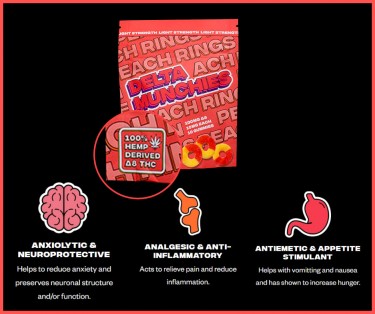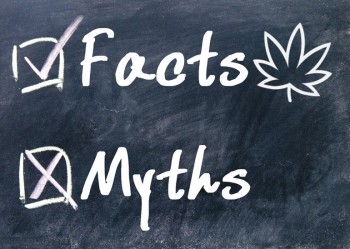
You can get high on hemp, America?
The biggest buyer of lab-made Delta-8 THC from hemp? Texas!
Why? Because they don't have much access to medical or recreational marijuana.
How is Texas ordering Delta-8 THC and getting it delivered to their door?
Within the cannabis industry, two things are becoming more and more well-known and scrutinized. This has led to questions over whether or not Delta-8 and Delta-9 THC originate naturally from cannabis plants. These compounds, which are essential to the cannabis experience, are provoking debates not just among users but also within regulatory bodies.
The principal psychoactive ingredient in cannabis is tetrahydrocannabinol, or THC, which is responsible for the recognizable "high." Cannabis plants contain delta-9 THC, which is well known for having strong effects. On the other hand, Delta-8 THC, which is frequently extracted from hemp, usually produces a tastier and more regulated high, indicating important differences between the two. THCA is also a cannabinoid that gets you high and is legal under the 2018 Farm Bill, at least so far.
Delta-9 THC: The Traditional Cannabis Encounter
Delta-9 THC, the quintessential element of conventional cannabis, is celebrated for triggering euphoria, heightened sensory perception, relaxation, and occasionally, anxiety. This cannabinoid, predominantly found in marijuana plants and responsible for the renowned cannabis high, has profoundly influenced both cultural and legal perspectives on marijuana usage. However, its psychoactive attributes also give rise to legal complexities that vary considerably across regions.
Delta-8 THC: The Subdued Synthetic Alternative
Delta-8 THC, a less popular cannabinoid recognized for its milder effects compared to Delta-9, provides a less intense high with reduced psychoactivity. Mainly produced in labs from a CBD isolate extracted from the hemp plant, it thrives in a multifaceted regulatory landscape, often more accessible compared to the stringent regulations faced by Delta-9. This gentler profile appeals to users seeking a moderate cannabis experience without the pronounced intensity. Its growing popularity among a diverse range of cannabis users is primarily driven by the desire for therapeutic benefits without the typical effects of Delta-9 THC, which some find overwhelming.
Interestingly, a recent study revealed that 26% of Delta-9 THC products derived from hemp actually originate from marijuana, blurring the lines between natural and synthesized sources. This research underscores the complexity and misconceptions surrounding these compounds.
Understanding these key distinctions empowers users to make informed choices, aligning their cannabis use with personal preferences and desired effects.
Delta-8 vs. Delta-9. Contrasting Highs and Legal Complexities
The interaction between Delta-8 and Delta-9 THC entwined weaves the dynamics of the cannabis experience, each providing a distinct trip into altered states of consciousness. Deeply ingrained in the history of cannabis, delta-9 THC is the embodiment of the traditional "high." Due to its well-known ability to produce pleasure, increased sensory experience, relaxation, and occasionally anxiety, it has become a central theme in marijuana-related cultural and legal narratives. But Delta-9 THC's potent psychoactivity also brings with it a confusing web of legal issues, as local laws differ greatly from one another. This variety makes it more difficult for consumers to navigate the legal cannabis consuming environment.
In contrast, Delta-8 THC emerges as a less mainstream yet intriguing alternative. Derived primarily from hemp, this cannabinoid offers a subtler high with reduced psychoactivity, providing users with a more controlled and milder experience. The synthesis of Delta-8 THC often occurs in laboratories, utilizing CBD isolates extracted from hemp plants. This synthetic journey not only sets Delta-8 apart from its Delta-9 counterpart but also positions it within a regulatory landscape that tends to be more lenient. The accessibility of Delta-8 THC, relative to the stringent regulations faced by Delta-9, contributes to its growing popularity among cannabis users seeking a therapeutic experience without the overwhelming intensity associated with traditional cannabis highs.
As the legal and cultural discussions around cannabis intensify, the dichotomy between Delta-8 and Delta-9 THC highlights the need for nuanced understanding. Regional variations in laws and regulations underscore the complexity of navigating the cannabis landscape. Users are increasingly challenged to align their preferences and desired effects with a backdrop of evolving legal considerations. This contrast in highs and legal complexities becomes a focal point for individuals striving to make informed choices, reflecting the ever-shifting tapestry of the cannabis industry.
The Lab Connection: Delta-8 THC's Synthetic Journey from Hemp
Within the intricate world of cannabis, the emergence of Delta-8 THC as a synthetic alternative draws attention to its unique journey from hemp plants to laboratory synthesis. Unlike its Delta-9 counterpart, which is naturally abundant in marijuana, Delta-8 THC often undergoes a process of synthesis primarily in controlled environments. The starting point of this journey is often a CBD isolate extracted from the hemp plant, laying the foundation for a distinct cannabinoid experience.
Laboratory synthesis of Delta-8 THC offers a level of precision and control that sets it apart from the inherent variations found in natural cannabis plants. This synthetic route not only ensures a consistent product but also positions Delta-8 within a regulatory landscape that is notably different from the traditional regulations faced by Delta-9 THC. The more accessible path for Delta-8 THC in regulatory frameworks adds to its appeal, especially in regions where stringent controls on Delta-9 THC prevail.
The allure of Delta-8 THC is found in both its synthetic provenance and the unique profile it offers consumers. For individuals looking for a more moderate cannabis experience, the milder effects and less psychoactivity make it an appealing choice. As this synthetic substitute becomes more and more well-known, it adds nuance to the continuing debate over natural vs synthetic cannabinoids, upending long-held beliefs in the cannabis community and forcing a reevaluation of what constitutes a genuine cannabis experience.
Bottom Line
The article unravels the complex interplay between Delta-8 and Delta-9 THC, illuminating their distinct characteristics and the evolving landscape of cannabis consumption. While Delta-9 THC remains a symbol of the traditional cannabis experience with its potent psychoactive effects, Delta-8 emerges as a synthetic alternative, offering a more controlled and milder high. The legal complexities surrounding both compounds underscore the intricate regulatory tapestry in which they exist, with regional variations adding layers of complexity for users. As the cannabis industry navigates debates over natural versus synthetic cannabinoids, the article emphasizes the need for informed choices, empowering users to align their preferences with the ever-shifting dynamics of legality and desired effects in the realm of cannabis consumption.
THE DIFFERENCE BETWEEN DELTA-8S, READ ON...
I GOT HIGH ON DELTA-8 THC AND DELTA-9 THC, HERE IS THE DIFFERENCE!






